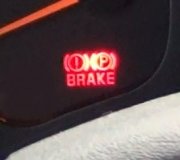Anything that would block fluid flow, such as mud in the combination valve would cause a hard brake pedal. The proportioning valve, which is inside the combination valve, doesn't even enter the picture accept under hard braking. If you're getting fluid flow from the rear bleeder screws, air will be coming out too, and the lines are not blocked.
Many ABS hydraulic controllers require the use of a scanner to activate various valves to allow any air to be bled out. You still didn't say why you had to bleed the brakes. If the master cylinder was never allowed to run empty, there would be no air in the ABS controller. Even if you replaced calipers and bled them, no air should have entered the steel lines or the ABS system. Often when someone removes a caliper to replace it, brake fluid drips from the hose and runs the master cylinder empty. An easy way to avoid that is to place a stick from the seat to the brake pedal to hold the pedal down an inch or two. Gravity won't be strong enough to pull the brake fluid past the lip seals on the master cylinder's pistons.
If you suspect there might be air in the ABS hydraulic controller, you might consider driving in a safe area and trying to make the tires skid to activate the system. Air may be pushed out to the steel lines going to the wheels where it can be bled normally later. I never tried that myself, and little fluid volume flows out so that might not work. A brake specialist at the dealer should be able to tell you if a scanner is needed that can access the ABS computer to bleed that system. If it is, there's little chance of getting the air out without one.
Monday, May 21st, 2012 AT 1:47 AM


